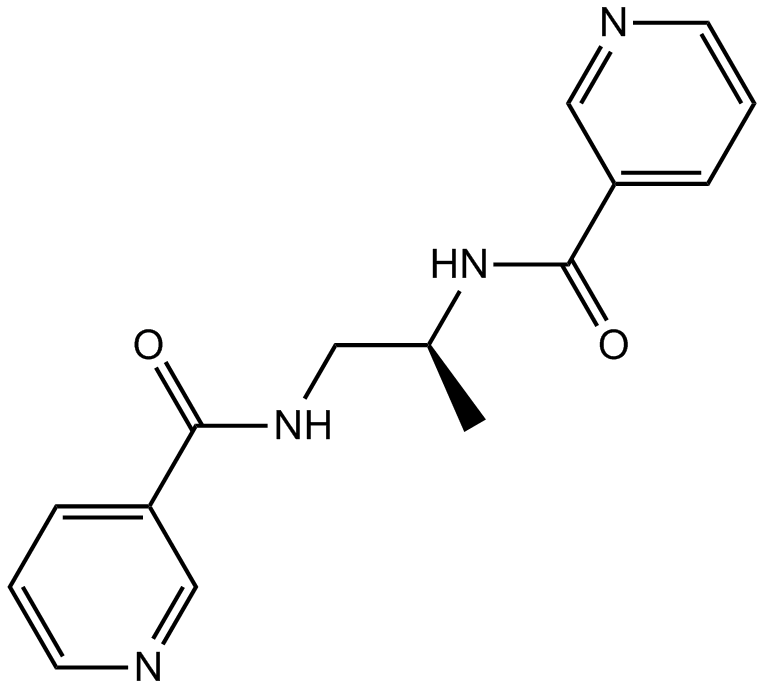Nicaraven |
| Catalog No.GC10912 |
Hydroxyl radical scavenger
Products are for research use only. Not for human use. We do not sell to patients.

Cas No.: 79455-30-4
Sample solution is provided at 25 µL, 10mM.
Nicaraven is a novel chemically synthesized hydroxyl radical-specific scavenger.
The maximum aggregation rate induced by adenosine diphosphate (ADP) is significantly inhibited by nicaraven at concentration ranges of 350 μM or higher in the healthy volunteer platelets. The maximum aggregation rate induced by collagen is significantly inhibited by 1.75 mM of nicaraven[1].
Nicaraven inhibits lipid peroxidation in the liver, improves hepatic and systemic hemodynamics and energy metabolism, and suppresses liver enzyme release, endothelin-1 elevation in hepatic venous blood, histologic damage, and neutrophil infiltration into the liver[1]. Nicaraven increases the number of c-kit(+) stem/progenitor cells in bone marrow and peripheral blood, with a recovery rate around 60-90% of age-matched non-irradiated healthy mice. The potency of colony forming from hematopoietic stem/progenitor cells as indicator of function is completely protected with nicaraven treatment[2]. Administration of nicaraven significantly increases the number, improves the colony-forming capacity, and decreases the DNA damage of hematopoietic stem/progenitor cells. The urinary levels of 8-oxo-2′-deoxyguanosine, a marker of DNA oxidation, are significantly lower in mice that are given nicaraven compared with those that receive a placebo. The administration of nicaraven significantly decreases the levels of the inflammatory cytokines IL-6 and TNF-α in the plasma of mice[3].
References:
[1]. Komiya T, et al. A novel free radical scavenger, nicaraven, inhibits human platelet aggregation in vitro. Clin Neuropharmacol. 1999 Jan-Feb;22(1):11-4.
[2]. Yokota R, et al. A novel hydroxyl radical scavenger, nicaraven, protects the liver from warm ischemia and reperfusion injury. Surgery. 2000 Jun;127(6):661-9.
[3]. Ali H, et al. The potential benefits of nicaraven to protect against radiation-induced injury in hematopoietic stem/progenitor cells with relative low dose exposures.
[4]. Nicaraven attenuates radiation-induced injury in hematopoietic stem/progenitor cells in mice. PLoS One. 2013;8(3):e60023.
Average Rating: 5 (Based on Reviews and 8 reference(s) in Google Scholar.)
GLPBIO products are for RESEARCH USE ONLY. Please make sure your review or question is research based.
Required fields are marked with *




















